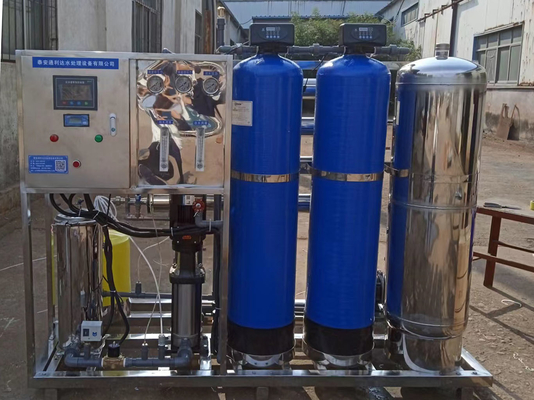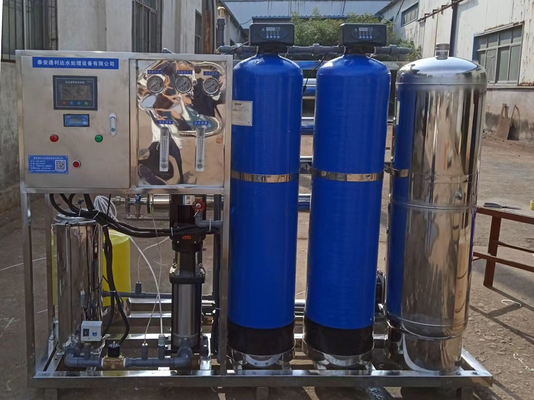-
Condensate Water Recovery Device
-
Reverse Osmosis Equipment
-
Fully Automatic Water Softener
-
Industrial Sand Filter
-
Water Supply Equipment
-
Chemical Dosing Device
-
Container Flipper
-
Container Loading and Unloading Machine
-
Truck Flipper
-
Electric Transfer Cart
-
Electronic Weighbridge
-
Mobile Loading Dock Ramp
-
Air Compressor Heat Recovery
-
Water Treatment Accessories
Ro Plant For Industrial Use Purified Water With Ultrafiltration Technology Reverse Osmosis Device

Contact me for free samples and coupons.
Whatsapp:0086 18588475571
Wechat: 0086 18588475571
Skype: sales10@aixton.com
If you have any concern, we provide 24-hour online help.
x| Features | High Efficiency, Energy-saving, Environmentally Friendly, Intelligent, And Versatile. | Product Material | Composite Material |
|---|---|---|---|
| Application Fields | Electronics, Industrial, Pharmaceutical, Food, And Other Industries For The Preparation Of Purified Water And Ultrapure Water. | Brand | Tonglida |
| Origin | Taian, Shandong | Product Information | RO Reverse Osmosis Water Treatment Equipment For Purified Water, Ultrapure Water, And Ultrafiltration |
| Highlight | industrial reverse osmosis device,ultrafiltration reverse osmosis device,ultrafiltration ro plant for industrial use |
||
Product Description:
Reverse osmosis systems typically consist of two main units: pre-treatment and RO main units. The RO membrane used in these systems can be customized based on the user's material and water quality requirements. This specialized membrane is made of high molecular materials and works by permitting only water molecules to pass through while rejecting solutes.
The process of reverse osmosis involves applying high pressure with a pump to the feedwater. When the pressure on one side of the semi-permeable membrane exceeds the osmotic pressure, water molecules can permeate through the membrane to the other side, resulting in purified water. Inorganic salts, heavy metal ions, organic substances, bacteria, colloids, and other impurities in the feedwater cannot pass through the semi-permeable membrane and are discharged with the concentrate instead.
Features:
High efficiency , energy-saving , environmentally friendly , intelligent , and versatile are all important features that customers look for when selecting products.
In today's world, it is essential for manufacturers to design and produce products that not only meet the needs of consumers but also reduce energy consumption and protect the environment. High efficiency and energy-saving are key aspects of this design philosophy, as they help to minimize waste and reduce the impact on the environment.
Another critical factor is environmentally friendly production that involves using sustainable materials and processes that limit pollution and waste.
In addition to being environmentally conscious, consumers today are also looking for products that are intelligent and versatile . Intelligent products with advanced features, modern design, and user-friendly interfaces are preferred to the outdated and basic alternatives. A versatile product can be used for multiple purposes and can adapt to the changing needs of the user.
Summary: In summary, customers today demand products that are high in efficiency , energy-saving , environmentally friendly , intelligent , and versatile . These features are critical for manufacturers to incorporate into their product design to meet the needs of environmentally conscious consumers who are seeking modern and versatile solutions.
Technical Parameters:
The pore size of a reverse osmosis membrane is incredibly small, measuring just 0.0001 micrometers. In contrast, the pore size of a typical PP cotton filter cartridge is 5 micrometers, while an ultrafiltration membrane measures in at 0.01 micrometers. Bacteria and heavy metal ions, on the other hand, have a pore size of just 0.001 micrometers.
Due to the incredibly small pore size of a reverse osmosis membrane, this type of equipment is incredibly effective at removing impurities, bacteria, and other substances from water.
Reverse osmosis equipment is capable of producing large quantities of water, ranging anywhere from 1 to 100 tons, depending on the specific requirements. Even for household uses, the minimum water production capacity is 7.8 liters per treatment.
Depending on the needs of a particular setup, the reverse osmosis equipment can be configured to produce varying amounts of water, ranging from 0.5 tons, 1 ton, 2 tons, 5 tons, 10 tons, all the way up to 50 or 100 tons.
Reverse osmosis equipment is incredibly convenient, fast, and labor-saving thanks to fully automatic control valves. These valves can be set based on flow rate or time, and the filter media of the equipment can even be self-cleaned online.
In other words, there's no need for manual monitoring, as the reverse osmosis equipment can intelligently control and regulate itself.
Thanks to the use of quartz sand, activated carbon, scale inhibitors, fine filtration, and five-stage reverse osmosis filtration, the lifespan of this equipment is extended significantly. In other words, you can expect your reverse osmosis equipment to serve you well for years to come.
Reverse osmosis equipment is incredibly effective at recovering water, able to achieve a recovery rate of up to 75%. This is a testament to the effectiveness of the equipment, as well as its capabilities for recovering water in a way that is both efficient and environmentally friendly.
Applications:
In industries such as electronics, industrial, pharmaceutical, and food, purified water and ultrapure water are prepared for various processes.
The textile and chemical industries use water purification systems for the purification and preparation of process water/chemical circulating water, and manufacturing of chemical products.
The food and beverage industry uses water purification systems for the purification and preparation of water for drinking, beverages, beer, liquor, health products, etc.
In industrial production, water purification systems are used for concentration and recovery of useful substances.
In the power industry, water purification systems are used for the pretreatment of high-pressure boiler feedwater, boiler feedwater for thermal power boilers, and low-pressure boiler power systems in plants and mines.
Water purification systems also play a critical role in desalination and desalting of brackish water and seawater for various industries.
Primary desalination equipment is used for the production of high-purity water in pure water systems.
Water purification systems are used by various enterprises and institutions, including communities, real estate properties, schools, factories, hospitals, tea houses, hotels, beauty salons, canteens, etc.
The systems can also be used for the production of bottled water, mineral water, and other packaged water.
For the electronics industry, water purification systems are used for rinsing water for integrated circuits, silicon wafers, display tubes, and other electronic components.
In the pharmaceutical industry, water purification systems are used for large-volume infusion, injections, tablets, biochemical products, equipment cleaning, and more.
Water purification systems are also used for desalination of seawater and brackish water for islands, ships, offshore drilling platforms, and brackish water areas.
Lastly, ultra-pure water is used for other process uses, including automotive, household appliance painting, coated glass, cosmetics, fine chemicals, and more.




